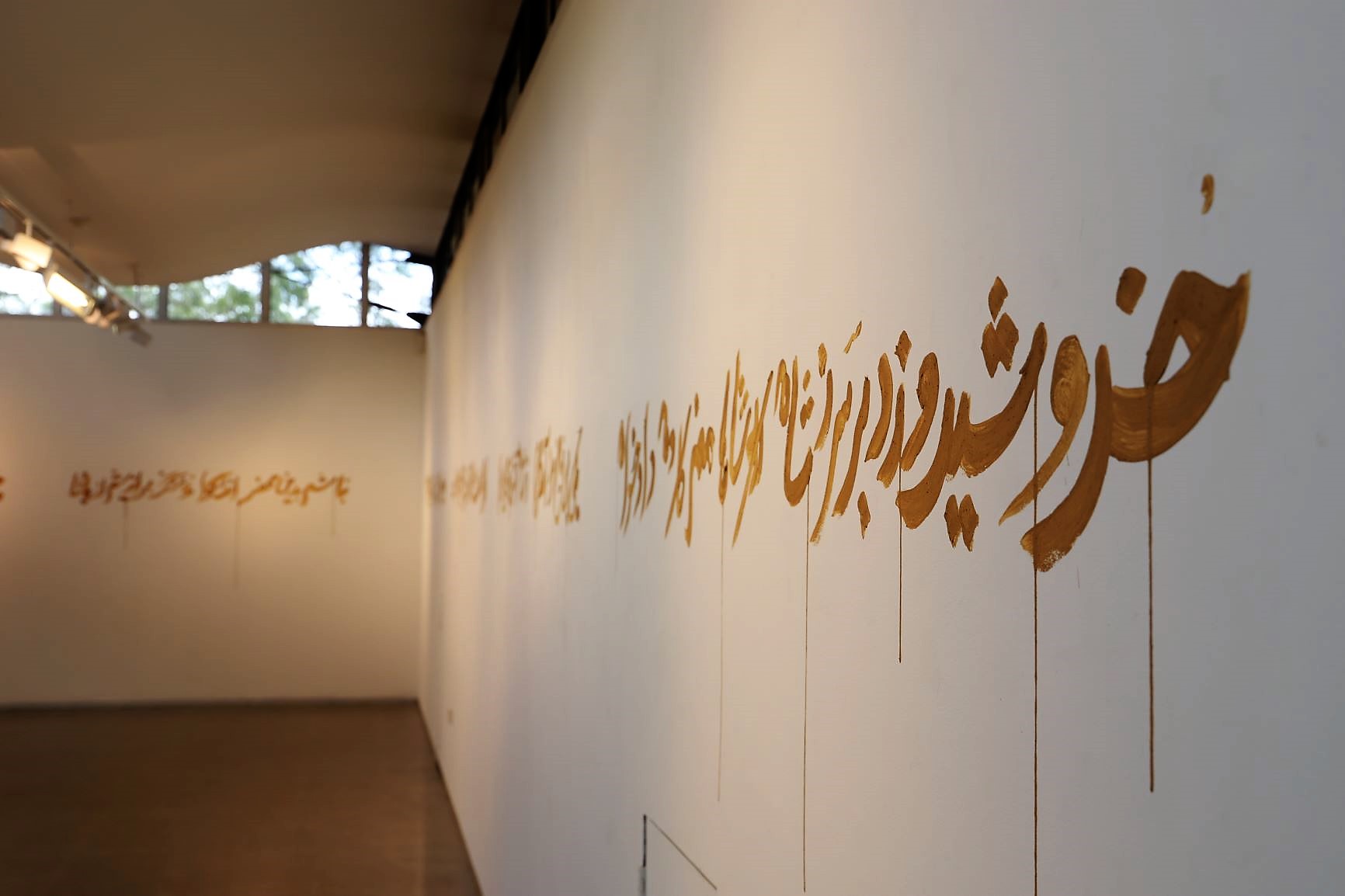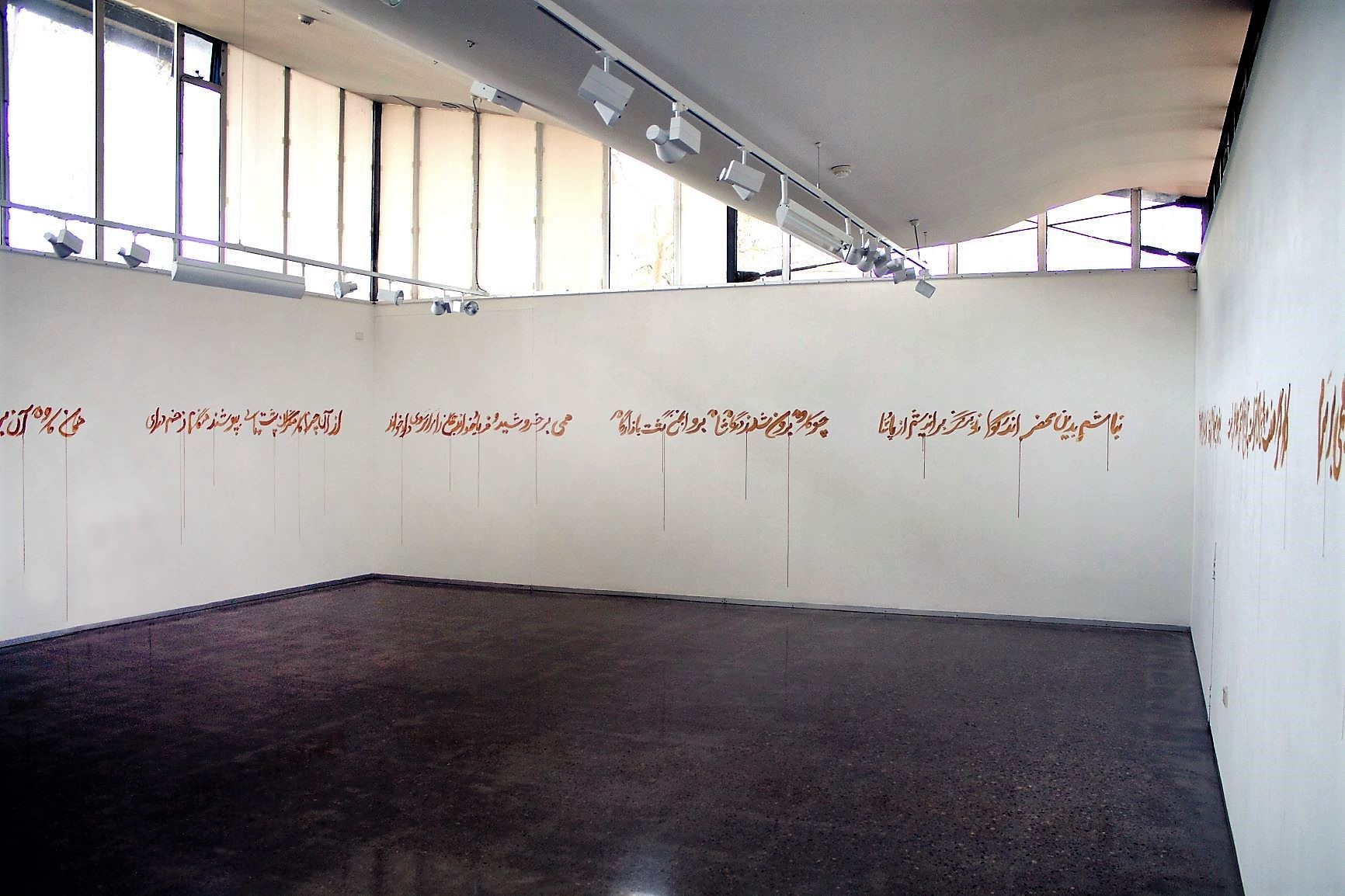KAVEH THE BLACKSMITH, 2018
Slip Terracotta clay
1.7 x 33.1 m
Iranian artists use references to Persian mythology to discuss contemporary political events. In Kaveh the Blacksmith, Mojgan Habibi uses a story from the Shahname (Book of Kings) by the Persian poet Ferdowsi (ca. 940 CE – 1020 CE) in which Kaveh, a humble blacksmith, stands up against Zahak, an unjust ruler.
The original literary work can be interpreted to speak of non-violent resistance. Kaveh, who had seen seventeen of his eighteen sons killed by the King Zahak, enters the royal palace to ask that the life of his last sons be spared. The king Zahak agrees, under the condition that Kaveh signs a declaration of support for King Zahak. The blacksmith refuses, destroys the declaration and leaves the palace to mobilise others.
Habibi has reproduced part of the Kaveh story in Persian calligraphy on the gallery walls using unfired clay slip. This work describes political participation by an individual – the brave decision to speak out against injustice, the ability to say no to unjust contracts, and the possibility to assemble and associate.
خروشید و زد دست بر سر ز شاه که شاها منم کاوهٔ دادخواه
یکی بیزیان مرد آهنگرم ز شاه آتش آید همی بر سرم
که گر هفت کشور به شاهی تراست چرا رنج و سختی همه بهر ماست
بفرمود پس کاوه را پادشا که باشد بران محضر اندر گوا
نباشم بدین محضر اندر گوا نه هرگز براندیشم از پادشا
چو کاوه برون شد ز درگاه شاه برو انجمن گشت بازارگاه
همی بر خروشید و فریاد خواند جهان را سراسر سوی داد خواند
ازان چرم کاهنگران پشت پای بپوشند هنگام زخم درای
همان کاوه آن بر سر نیزه کرد همانگه ز بازار برخاست گرد
ز دیبای پرمایه و پرنیان برآن گونه شد اختر کاویان
که اندر شب تیره خورشید بود جهان را ازو دل پرامید بود
Kaveh exclaimed, “Your Majesty, I am Kaveh, I am seeking justice. Grant me Justice! I am a humble blacksmith, yet flares descend on me from his majesty. If you are the King of seven kingdoms, why is all this suffering for us?” The King said to Kaveh “Sign the document.” Kaveh responded, “I will not testify to the King’s legitimacy, nor will I ever fear the King.” As Kaveh left the King’s palace, people gathered around him in the market place. With rage, Kaveh roared and urged the world to demand justice. Out of a piece of leather from his blacksmith’s apron, he made a banner. Kaveh fastened the banner onto the tip of a spear. Out of the market place, the dust rose high. His sign was ornamented with silk and jewels and given the title of ‘the Kaviani Banner’. In darkness, the banner did shine like a sun, and gave warmth and hope to the hearts of all people.
Translation by Mojgan Habibi



